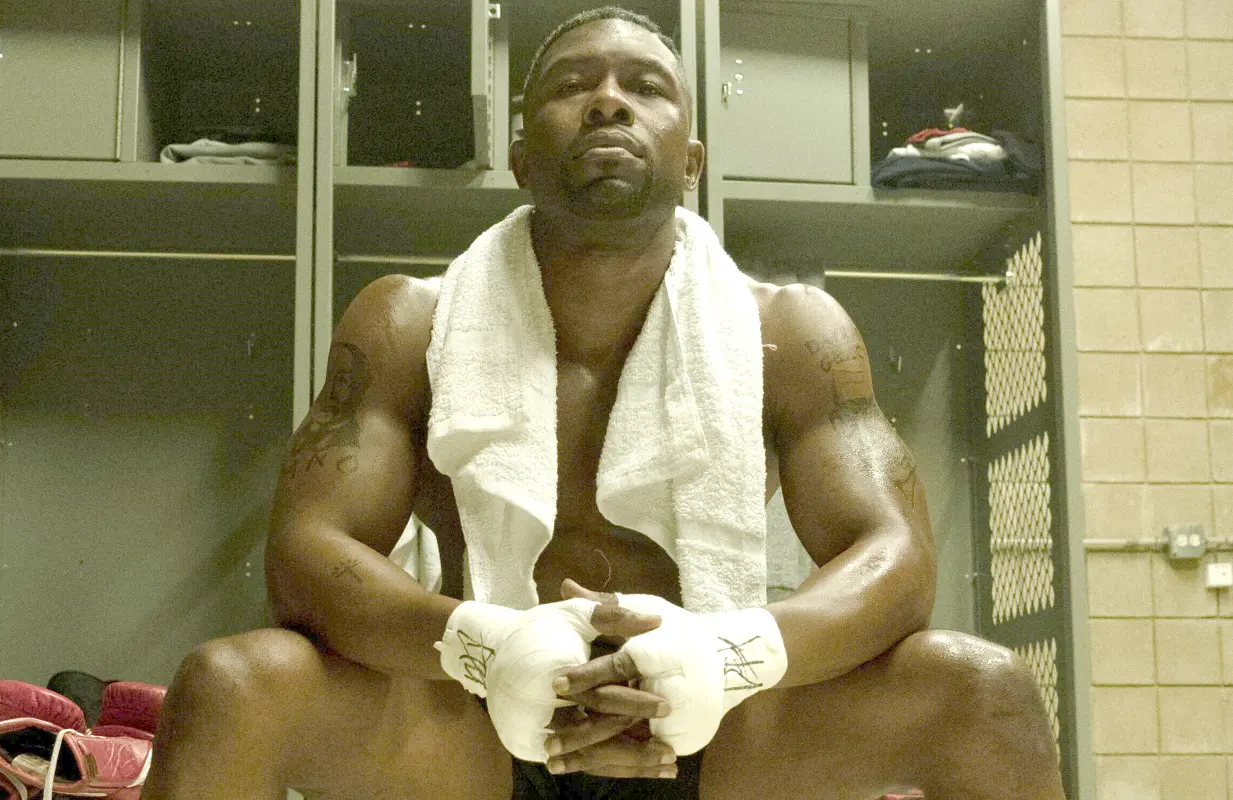Tyson May Not Like It, But Hulu's Mike Lionizes Him All the Same
-
 Trevante Rhodes as Mike Tyson in Mike. (Photo: Josh Stringer/Hulu)
Trevante Rhodes as Mike Tyson in Mike. (Photo: Josh Stringer/Hulu)Mike Tyson has complained that Hulu's unauthorized miniseries about his life is an act of "tone-deaf cultural appropriation," but anyone who watches might think he commissioned it himself. Though the press materials for Mike, which premieres August 25, insist the eight-part series "never attempts to portray Mike Tyson as a hero or a villain," his self-righteous perspective nearly smothers the five episodes screened for critics.
This is mostly because the series is framed around a performance of Undisputed Truth, the one-man autobiographical play that Tyson toured around the country and even took to Broadway in 2012. On screen as on stage, it's his voice that guides the story, and he frequently interrupts scenes to correct or even mock other people in his life. Sometimes we cut to him standing on stage and getting laughs from his audience, and sometimes the actors playing Tyson at various points in his life offer their commentary directly to the camera. Either way, the implication is the same: Tyson's perspective is the one that matters here.
And that perspective leaves no room for self-blame. Over and over, Tyson (played as an adult by Moonlight star Trevante Rhodes) blames everyone else for his problems, from his uncaring mother to his rough Brownsville neighbors to his unscrupulous manager Don King (Russell Hornsby). At one point he even chastises the audience at his stage show for paying money to hear about his pain. Without other characters given space to dissent, the first four episodes play like an infomercial for a bitter man's grievances.
And while the focus briefly moves to someone else in episode five, it hardly matters.
Titled "Desiree," the segment is clearly meant to provide some balance to the story. It's told from the perspective of Desiree Washington (Li Eubanks), the beauty pageant contestant who Tyson was convicted of raping in 1992. To the show's credit, Washington is given extended monologues about her life before Tyson, as well as her experience at the trial, and there are title cards that note how she has disappeared from public view, despite being criticized as a fame monger at the time of the court proceedings. There are also scenes that demonstrate how quickly Black religious and cultural leaders turned against her in the name of protecting the image of a famous Black man.
But the name of the series isn't Desiree. Tyson inevitably returns to center stage, and structurally, that makes his rape conviction just one one more narrative tidibt for him to chew on.
Speaking of chewing: It's possible the final episodes of the series will find a thoughtful way to discuss Tyson's much talked-about "bite fight" with Evander Holyfield, just like it's possible there will be a mention of his April 2022 assault of a fellow JetBlue passenger. But the show has already tipped its hand. It is constructed to lionize its protagonist, who's presented as being too big and too powerful to share the stage with anything but his own legend.
Mike premieres Thursday, August 25 on Hulu.
People are talking about Mike in our forums. Join the conversation.
Mark Blankenship has been writing about arts and culture for twenty years, with bylines in The New York Times, Variety, Vulture, Fortune, and many others. You can hear him on the pop music podcast Mark and Sarah Talk About Songs.
TOPICS: Mike, Hulu, Craig Gillespie, Li Eubanks, Mike Tyson, Russell Hornsby, Steven Rogers, Trevante Rhodes